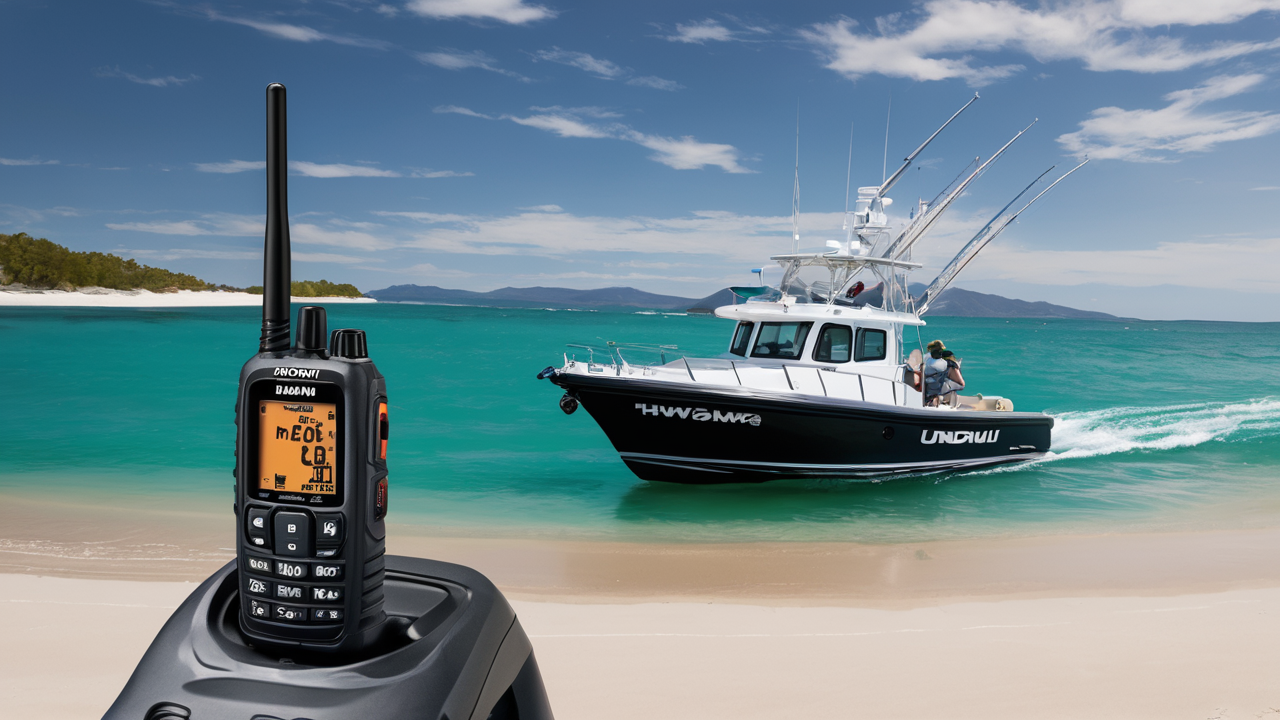Understanding the Importance of Two-Way Radios on Boats
The Role of Two-Way Radios in Navigational Safety
Marine two-way radios are crucial for boat safety. They allow boaters to communicate with other vessels and shore stations. In emergencies, these devices can be lifesavers. They help boaters call for help or warn others of dangers.

Two-way radios also aid in navigation. Boaters can get weather updates and sea conditions. This info helps them make safe sailing decisions. Many radios have GPS, which is vital for location tracking. In fog or low visibility, radios become even more important.
Enhancing Your Boating Experience with Effective Communication
Good communication makes boating more enjoyable. Two-way radios let you talk to friends on other boats. You can coordinate meetups or share fishing spots. They're great for group trips, keeping everyone in touch.
Radios also help with docking and anchoring. You can get guidance from marina staff or fellow boaters. This makes tricky maneuvers easier and safer. For fishing enthusiasts, radios are key for sharing info about catches or fish locations.
Legal Requirements for Boats in the United States
In the U.S., many boats must have a VHF radio by law. This applies to vessels over 20 meters long. Smaller boats aren't required to have them, but it's strongly advised. The Coast Guard monitors Channel 16 for distress calls.
Boaters should know how to use their radio properly. This includes knowing the right channels and protocols. Misuse of marine radios can result in fines. It's important to follow the rules set by the FCC and Coast Guard.
Best Marine Two-Way Radios: Features and Recommendations
Top Features to Look for in a Marine Two-Way Radio
When choosing a marine two-way radio, consider these key features:

- Waterproof rating: Look for IPX7 or higher
- Floating design: Helpful if dropped overboard
- DSC (Digital Selective Calling): For automated distress signals
- GPS integration: For accurate location sharing
- Battery life: Longer is better for extended trips
- Range: Depends on your boating needs
- Clarity of sound: Important in noisy marine environments
- Ease of use: Simple controls for quick operation
Expert Recommendations: Which Marine Two-Way Radios Stand Out
Experts often recommend these top marine two-way radios:
- Standard Horizon GX1700: Known for GPS integration and reliability
- Icom M93D: Offers excellent range and clear audio
- Uniden MHS75: Compact and budget-friendly with good performance
- Cobra MRHH350FLT: Floats and has a built-in flashlight
- Garmin 110: User-friendly with a large display
These radios balance features, durability, and price. They're suitable for various boating needs.
Comparing Cost vs. Quality: How to Make an Informed Decision
When buying a marine two-way radio, balance cost and quality. Cheaper radios may lack important features. More expensive ones might have extras you don't need. Consider your boating habits and budget.
Key factors to weigh:
- Frequency of use
- Type of water (coastal, inland, offshore)
- Boat size
- Typical trip duration
Invest in a quality radio if you boat often or in challenging conditions. For occasional use in calm waters, a mid-range option may suffice. Remember, a good radio can be a lifesaver. It's worth spending a bit more for reliability.
Implementing and Maintaining Marine Two-Way Radios
Best Practices for Installing Marine Two-Way Radios
Proper installation ensures your marine two-way radio works well. Follow these tips:

- Choose a dry, accessible location
- Mount securely to prevent damage from vibration
- Keep away from other electronics to avoid interference
- Ensure the antenna has a clear view of the sky
- Use marine-grade wiring and connections
- Ground the radio correctly to the boat's electrical system
- Test the radio after installation
For fixed-mount radios, consider professional installation. Handheld units are simpler but still need care in placement and charging.
Routine Maintenance Tips for Marine Two-Way Radios
Regular maintenance keeps your radio in top shape. Here's what to do:
- Clean the radio with fresh water after salt exposure
- Check and clean connections regularly
- Inspect the antenna for damage
- Test the radio before each trip
- Keep batteries charged and replace when needed
- Update software if applicable
- Store in a cool, dry place when not in use
Follow the manufacturer's care instructions. This helps extend the life of your radio.
Troubleshooting Common Issues with Marine Two-Way Radios
Even with good care, issues can arise. Here are common problems and solutions:
- Poor reception: Check antenna connection and location
- Radio won't turn on: Verify power source and connections
- Weak transmission: Test in different locations, might be environmental
- Static or noise: Look for interference from other electronics
- Water damage: Use rice to absorb moisture, then seek professional help
- Channel issues: Ensure you're on the correct frequency
- GPS not working: Check for clear sky view and satellite connection
If problems persist, consult the manual or contact the manufacturer. Don't hesitate to seek professional help for complex issues. A working radio is crucial for safety at sea.


